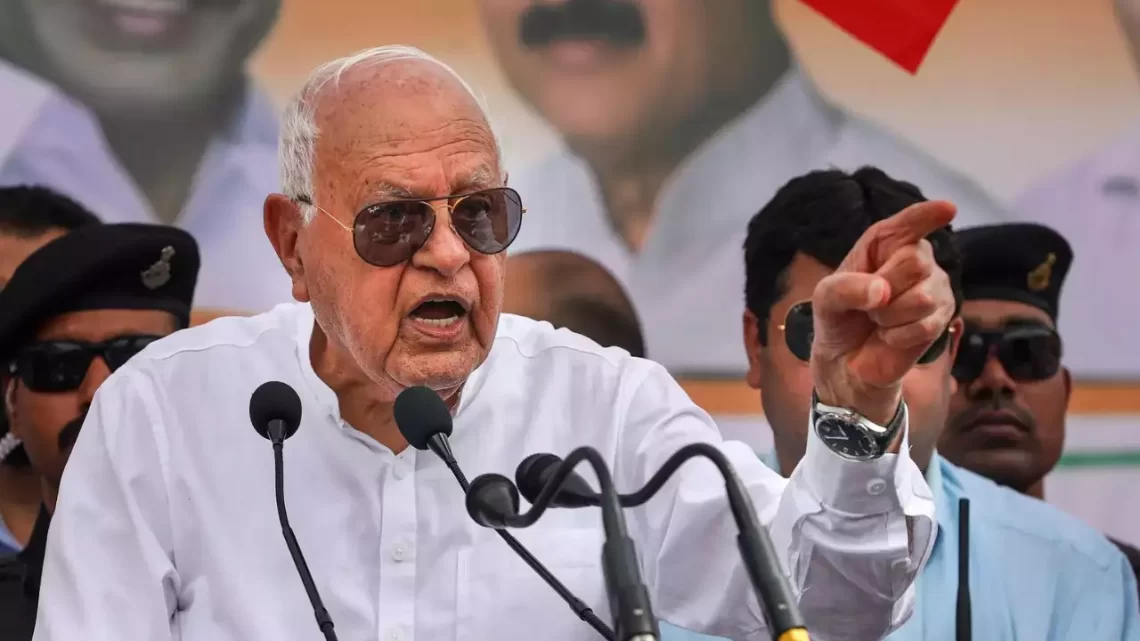
Farooq Abdullah Condemns Modi’s Remarks on ‘Mangalsutra’ as Targeting Muslims
April 24, 2024Farooq Abdullah, the President of the National Conference, delivered a scathing critique of Indian Prime Minister Narendra Modi’s recent remarks about the ‘mangalsutra,’ alleging that they were a deliberate attempt to target Muslims.
Abdullah, speaking to journalists in Srinagar, vehemently dismissed Modi’s suggestion that Muslims would snatch the mangalsutra from Hindu women. He emphasized that Islam teaches equality and respect for all religions, refuting any notion of disrespect towards other faiths.
“It is unimaginable that a Muslim would snatch the mangalsutra of a Hindu mother or sister. Such actions are contrary to the teachings of Islam,” Abdullah asserted firmly.
The NC leader rebuked Modi’s statements, made during a rally in Rajasthan, where he implied that the Congress intended to distribute valuables, including mangalsutras, to specific groups. Abdullah countered these claims, emphasizing that Islam prohibits disrespect towards any religion.
Expressing skepticism about the BJP’s ‘One Nation, One Election’ initiative, Abdullah questioned its practicality given India’s diverse states. He also raised concerns about potential amendments to the constitution, questioning the BJP’s underlying motives.
Abdullah cautioned political allies against aligning with the BJP without considering its treatment of Muslims. He warned against alliances that could jeopardize the interests of minority communities.
Abdullah’s response to Modi’s comments underscores the ongoing tension surrounding religious and political discourse in India. By refuting Modi’s insinuations and emphasizing Islamic principles of equality and respect, Abdullah positions himself as a defender of religious harmony and minority rights.
His criticism of the BJP’s agenda reflects broader concerns about centralization of power and potential erosion of federal principles in India’s political landscape. Abdullah’s skepticism about the feasibility of ‘One Nation, One Election’ echoes doubts raised by many political observers regarding its impact on regional diversity and democratic processes.
Furthermore, Abdullah’s warning to political allies serves as a reminder of the complex dynamics shaping coalition politics in India. With religious identity often intersecting with political affiliations, his caution highlights the need for principled decision-making and safeguarding the interests of marginalized communities.
Overall, Abdullah’s statements highlight the importance of nuanced dialogue and inclusive policies in addressing the multifaceted challenges facing India’s diverse society. They also underscore the role of political leaders in promoting tolerance, pluralism, and social cohesion amidst growing polarization.

